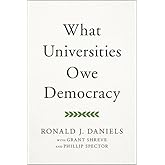
Enjoy fast, free delivery, exclusive deals, and award-winning movies & TV shows with Prime
Try Prime
and start saving today with fast, free delivery
Amazon Prime includes:
Fast, FREE Delivery is available to Prime members. To join, select "Try Amazon Prime and start saving today with Fast, FREE Delivery" below the Add to Cart button.
Amazon Prime members enjoy:- Cardmembers earn 5% Back at Amazon.com with a Prime Credit Card.
- Unlimited Free Two-Day Delivery
- Streaming of thousands of movies and TV shows with limited ads on Prime Video.
- A Kindle book to borrow for free each month - with no due dates
- Listen to over 2 million songs and hundreds of playlists
- Unlimited photo storage with anywhere access
Important: Your credit card will NOT be charged when you start your free trial or if you cancel during the trial period. If you're happy with Amazon Prime, do nothing. At the end of the free trial, your membership will automatically upgrade to a monthly membership.
Buy new:
-62% $14.95$14.95
Ships from: Amazon Sold by: merita cleaning
Save with Used - Very Good
$9.90$9.90
Ships from: Amazon Sold by: Jenson Books Inc

Download the free Kindle app and start reading Kindle books instantly on your smartphone, tablet, or computer - no Kindle device required.
Read instantly on your browser with Kindle for Web.
Using your mobile phone camera - scan the code below and download the Kindle app.

Follow the author
OK
Universities in the Marketplace: The Commercialization of Higher Education (The William G. Bowen Series) Paperback – December 5, 2004
Purchase options and add-ons
Is everything in a university for sale if the price is right? In this book, one of America's leading educators cautions that the answer is all too often "yes." Taking the first comprehensive look at the growing commercialization of our academic institutions, Derek Bok probes the efforts on campus to profit financially not only from athletics but increasingly, from education and research as well. He shows how such ventures are undermining core academic values and what universities can do to limit the damage.
Commercialization has many causes, but it could never have grown to its present state had it not been for the recent, rapid growth of money-making opportunities in a more technologically complex, knowledge-based economy. A brave new world has now emerged in which university presidents, enterprising professors, and even administrative staff can all find seductive opportunities to turn specialized knowledge into profit.
Bok argues that universities, faced with these temptations, are jeopardizing their fundamental mission in their eagerness to make money by agreeing to more and more compromises with basic academic values. He discusses the dangers posed by increased secrecy in corporate-funded research, for-profit Internet companies funded by venture capitalists, industry-subsidized educational programs for physicians, conflicts of interest in research on human subjects, and other questionable activities.
While entrepreneurial universities may occasionally succeed in the short term, reasons Bok, only those institutions that vigorously uphold academic values, even at the cost of a few lucrative ventures, will win public trust and retain the respect of faculty and students. Candid, evenhanded, and eminently readable, Universities in the Marketplace will be widely debated by all those concerned with the future of higher education in America and beyond.
- Print length256 pages
- LanguageEnglish
- Publication dateDecember 5, 2004
- Dimensions6.1 x 0.62 x 9.3 inches
- ISBN-100691120129
- ISBN-13978-0691120126
Book recommendations, author interviews, editors' picks, and more. Read it now.
Frequently purchased items with fast delivery
Editorial Reviews
Review
"Winner of the Alice L. Beeman Research Award in Communications for Educational Advancement"
"Provocative and original. . . . Bok is one of the premier elder statesman of American higher education."---Stephen B. Sample and Warren Bennis, Los Angeles Times
"Astute and fair-minded. . . . Derek Bok, a sensible man, has written a sensible book about the commercialization of the American university."---Jonathan Yardley, Washington Post Book World
"Contending that the trend toward excessive commercialization is not yet irreversible, Bok offers cogent, urgent arguments for reorienting universities toward fulfilling their unique purpose uncorrupted by the insidious influence of money." ― USA Today
"Derek Bok begins his new book with [a] nightmare of university avarice and moral decay. Some of the moneymaking schemes are imaginary, but, as Mr. Bok warns, the dangers inherent in the insatiable demands for revenue are not. . . . It is increasingly difficult . . . to meet higher education's insatiable financial demands through conventional means. . . . Mr. Bok notes that commercialization has seeped even into the core educational mission. . . . Having a Derek Bok to remind us of our higher calling and the present dangers may, if his words are heeded, be more consequential than we can imagine."---Anthony W. Marx, New York Times
"Raises lots of big, disquieting questions. . . . Universities that blur the lines between their own culture and that of the corporate world endanger their values without substantially raising the value of their endowments. It is, in short, shortsighted. With the publication of this book, the nation's universities can't say they weren't warned."---David M. Shribman, Chicago Tribune
"Derek Bok, the former president of Harvard, argues that institutions have, perhaps unwittingly, made Faustian bargains. . . . Athletics provides a cautionary tale. . . . The dangers of corporate-sponsored research are even greater."---Glenn C. Altschuler, Barron's
"Bok realizes that there are times when allowing a business to provide funding for research or clothing for an athletic team is critical to a particular college's survival, but the trend of marketing various aspects of higher education is becoming more prevalent. This book is Bok's way of sounding the alarm for universities to analyze their practices critically." ― Library Journal
"A humane and beautifully crafted book. Bok believes that the intrusion of the marketplace into the university is eroding fundamental academic values, and that we must act now to halt this decline. . . . [A] thoughtful and thought-provoking book."---Jeremy Gunawardena, Nature
"This is a good and needed book. . . . Bok strives for balance. He tries to puncture both the dangers to academe raised by its purists and the promises of easy money made by mortarboard Babbitts. He calls for new scrutiny of financial relationships between university researchers and companies. He [worries that] . . . corporate cash, fed slowly but in rising and addictive doses, will become the force behind what is discovered and what is ignored and even suppressed."---Ned Barnett, Raleigh News & Observer
"Bok shows that he knows his subject well and that he has done his homework. Moreover, he marshals the relevant facts with an even hand and unsparing candor. . . . One can only hope that his book will help the public understand what is at stake and will generate support for the needed reforms. Derek Bok has sounded a warning that ought to be heeded."---Arnold S. Relman, New England Journal of Medicine
"Bok is sensibly, judiciously and presidentially concerned. He puts the commercialization of the university into the same frame as big-time intercollegiate sport: both are unambiguous distractions from what universities are properly supposed to be about."---Steven Shapin, London Review of Books
"A thoughtful, clear-eyed inquiry into the impact of commercialization on the university's fundamental missions of education and research."---Daniel J. Kevles, American Scientist
"Bok is a retired President of Harvard, who was Dean of Harvard Law School before becoming President, and has been a distinguished professor in the Kennedy School of Government in his retirement. Harvard's endowment is worth something around $20 billion, so Professor Bok's views on money in higher education carry a certain weight. Bok provides a measured account of what goes wrong when too much of what a university does is seen to be up for sale--but not so measured that the point is lost or the lesson muffled. . . . Bok's patient attention to useful policies that each university can institute on its own--forbidding coaches to lean on professors for better grades, putting gin place policies about disclosure that commercial sponsors must sign up to--is the sort of thing that is needed."---Alan Ryan, Times Literary Supplement
"[An] excellent and beautifully written book."---Gordon Johnson, Times Higher Education Supplement
"Informed, concise, readable, temperate yet sounding necessary alarms." ― Change
Review
"Derek Bok's wise and judicious book offers a road map for all concerned with the health and integrity of higher education in an age that has seen the boundaries between the academic, corporate, and public worlds become more permeable and the need to understand the costs associated with that transition more urgent. At the same time, President Bok's analysis of the potential dangers lurking in contemporary tendencies toward 'commercialization' is an affirmation that the enduring values of the academy can be extended and strengthened through thoughtful and careful engagement with the questions at issue."―Hanna Holborn Gray, President Emeritus, University of Chicago
"Combining the experience of a seasoned university president with the analysis of a respected legal scholar, Derek Bok explores what he concludes are 'signs of excessive commercialization in every part of the university.' His somber assessment of the current state of athletics, scientific research, and distance education, and his call for review and restraint, should engage the attention of every faculty senate in the country. He has given us a timely, candid, courageous, and important book."―Frank H. T. Rhodes, President Emeritus, Cornell University
"This book is a thoughtful and wide-ranging analysis of the commercial pressures on universities. There is no other study like it. Extremely well organized, clear, and gracefully written, Universities in the Marketplace will be of interest to all those concerned about higher education and its future."―William G. Bowen, President, The Andrew W. Mellon Foundation
"Universities in the Marketplace is quite a successful book that breaks valuable new ground. Derek Bok's calmly reasoned voice contrasts favorably with the hyperbole that surrounds many such discussions. The writing is so clear and the arguments so reasonable that it is easy to overlook the author's effortless command of the relevant literature and his well-judged historical treatment of his subjects. No other book is both so comprehensive and so accessible."―Michael McPherson, President, Macalaster College
From the Publisher
From the Back Cover
"Derek Bok grasps better than anyone I know the changes that have taken place in the academic culture of American higher education. In Universities in the Marketplace, he documents the sheer growth of market forces and the escalation of commercialization in academia. Perhaps more important he alerts us that the reach of commercialization has moved from the innocent fringe of the campus (athletics and sweatshirts) to its academic heart. University presidents, trustees, and faculty leaders: take note! This is an important book."--Stanley O. Ikenberry, Regent Professor and President Emeritus, University of Illinois
"Derek Bok's wise and judicious book offers a road map for all concerned with the health and integrity of higher education in an age that has seen the boundaries between the academic, corporate, and public worlds become more permeable and the need to understand the costs associated with that transition more urgent. At the same time, President Bok's analysis of the potential dangers lurking in contemporary tendencies toward 'commercialization' is an affirmation that the enduring values of the academy can be extended and strengthened through thoughtful and careful engagement with the questions at issue."--Hanna Holborn Gray, President Emeritus, University of Chicago
"Combining the experience of a seasoned university president with the analysis of a respected legal scholar, Derek Bok explores what he concludes are 'signs of excessive commercialization in every part of the university.' His somber assessment of the current state of athletics, scientific research, and distance education, and his call for review and restraint, should engage the attention of every faculty senate in the country. He has given us a timely, candid, courageous, and important book."--Frank H. T. Rhodes, President Emeritus, Cornell University
"This book is a thoughtful and wide-ranging analysis of the commercial pressures on universities. There is no other study like it. Extremely well organized, clear, and gracefully written, Universities in the Marketplace will be of interest to all those concerned about higher education and its future."--William G. Bowen, President, The Andrew W. Mellon Foundation
"Universities in the Marketplace is quite a successful book that breaks valuable new ground. Derek Bok's calmly reasoned voice contrasts favorably with the hyperbole that surrounds many such discussions. The writing is so clear and the arguments so reasonable that it is easy to overlook the author's effortless command of the relevant literature and his well-judged historical treatment of his subjects. No other book is both so comprehensive and so accessible."--Michael McPherson, President, Macalaster College
About the Author
Product details
- Publisher : Princeton University Press (December 5, 2004)
- Language : English
- Paperback : 256 pages
- ISBN-10 : 0691120129
- ISBN-13 : 978-0691120126
- Item Weight : 12 ounces
- Dimensions : 6.1 x 0.62 x 9.3 inches
- Best Sellers Rank: #2,807,395 in Books (See Top 100 in Books)
- #1,370 in Education Funding (Books)
- #2,692 in International Economics (Books)
- #2,695 in Education Reform & Policy
- Customer Reviews:
About the author

Discover more of the author’s books, see similar authors, read book recommendations and more.
Customer reviews
- 5 star4 star3 star2 star1 star5 star55%35%10%0%0%55%
- 5 star4 star3 star2 star1 star4 star55%35%10%0%0%35%
- 5 star4 star3 star2 star1 star3 star55%35%10%0%0%10%
- 5 star4 star3 star2 star1 star2 star55%35%10%0%0%0%
- 5 star4 star3 star2 star1 star1 star55%35%10%0%0%0%
Customer Reviews, including Product Star Ratings help customers to learn more about the product and decide whether it is the right product for them.
To calculate the overall star rating and percentage breakdown by star, we don’t use a simple average. Instead, our system considers things like how recent a review is and if the reviewer bought the item on Amazon. It also analyzed reviews to verify trustworthiness.
Learn more how customers reviews work on AmazonTop reviews from the United States
There was a problem filtering reviews. Please reload the page.
- Reviewed in the United States on August 4, 2005Former Harvard University President Derek Bok warns that making commercial ventures part of the fabric of U.S. higher education endangers universities' basic values and goals. However, he also gives compelling descriptions of why trustees and administrators are tempted to sign deals with corporations. He is realistic about the slim prospects for keeping such ventures away, especially since some - like sports teams - are already entrenched. Because Bok's analysis is so deeply rooted in his years of experience leading Harvard, his proposed guidelines for how and when to allow big business on campus are particularly helpful. His views are occasionally unwarrantedly sunny, such as when he avers that faculty members rarely guide students into work that promotes the teacher's financial gain. He also asserts that faculty must be wary of collaborating with pharmaceutical companies to get access to facilities and materials, even though funding unfettered research has become increasingly difficult. Furthermore, after asserting that doctors are alert to drug companies' promotions in sponsored continuing education courses, he acknowledges research showing that doctors who attend such courses are more likely to prescribe the companies' drugs. Despite such detours, we find this book extremely valuable for anyone who believes that academic freedom and integrity truly matter. Academic leaders should read Bok's important, thoughtful and useful ideas on ways that colleges can minimize the risks of commercialization.
- Reviewed in the United States on July 14, 2010Nonacademic observers frequently express the wish that universities `be run like businesses'. The (often sad) fact is that they already are so run, to the detriment of academic principle and academic quality. Derek Bok is all too aware of these realities and explores them in this relatively brief book.
He is aware of the temptations, of course: big-time college athletics, licensing agreements with sportswear companies, the siren song of institution-saving patent income, the faculty/institutional participation in tech transfer businesses, medical school participation in clinical trials with self-interested pharmaceutical companies, the lure of the internet and mass, for-profit coursework, the exploitation of university extension, the erosion of admission standards in the face of significant development opportunities . . . the list goes on and on.
Bok provides a nice enumeration of the temptations, expresses sympathy for universities with regard to conditions that are already too far gone (athletics, the relationships between medical schools and the medical industry, e.g.) acknowledges that survival will generally trump values and principles, shows the pros and cons of commercial activities, relates some horror stories and offers counsel which, if implemented, would help to ameliorate our condition before it is too late.
Unfortunately, the advice takes a predictable form. For example, some university research has resulted in triumphs that have changed the institutions which developed the process or made the discovery. One thinks, for example (and Bok notes), Harry Steenbock's process for treating milk so that its constituent vitamin D would eliminate rickets. The Wisconsin Alumni Research Foundation (which manages the Steenbock (and other) patent income is one of Wisconsin's major comparative advantages. On the other hand, chasing patent income can often fail; it can divert universities from their fundamental purposes and it can distort their values. Bok then offers a host of examples of things that one might do (increased trustee regulatory oversight, etc.) to ameliorate this situation. However, he also acknowledges the fact that his proposals are unlikely to be a be-all and end-all solution, that there are two sides to this issue, etc. etc.
Thus, we get a good elucidation of the potential problems, some examples of how succumbing to the temptations can be deleterious (but with an awareness that the payoffs, if handled wisely, can be very advantageous), some suggestions for muting the problems (with an awareness that they are likely to be insufficient in and of themselves) and a final hope that we will all do good and avoid evil, to the extent possible.
The book benefits from Bok's extensive experience and usually clear-headed judgment; it is limited, of course, by the fact that Harvard's `problems' are markedly different from nearly everyone else's. It may have greater temptations but it also has the armor of a multibillion dollar endowment. At one point, for example, he argues that we should be wary of using extension as a cost center (i.e. a cost-generating center) because the college and graduate school (to which extension's `positive variances' would likely be reallocated) already have enough money. Ah, would that that were always so. He also talks about the generosity of the country in funding public education. Not to bite any of the hands which feed us . . . but that allocation now represents a smaller and smaller portion of public universities' total budgets and entrepreneurship (though hopefully not of the whorish variety) is now a university necessity.
- Reviewed in the United States on January 29, 2008Great book with real life examples about higer education, capitalism, and marketplace. Quick and easy read.
- Reviewed in the United States on December 28, 2014Bok totally misses the role that indirect costs (IDC) play in the incentive structure at Research I universities. As a result, his analysis is partial and his self-serving because he does not explicitly discuss the financial incentive structure of administrators associated with IDC.
- Reviewed in the United States on November 22, 2015Good general overview of the commercialization of academic institutions from an expert on the subject. Subjects covered include intercollegiate sports, education, and scientific research.
Top reviews from other countries
-
 鮭尾Reviewed in Japan on December 2, 2010
鮭尾Reviewed in Japan on December 2, 20105.0 out of 5 stars 米国の大学に対してこういう考え方もあった
日本が見習うべきお手本とされている米国の大学に対する批判。こういう批判もあるのだ。米国の大学の内部からの批判なので非常に興味深い。関係者は必読です。












